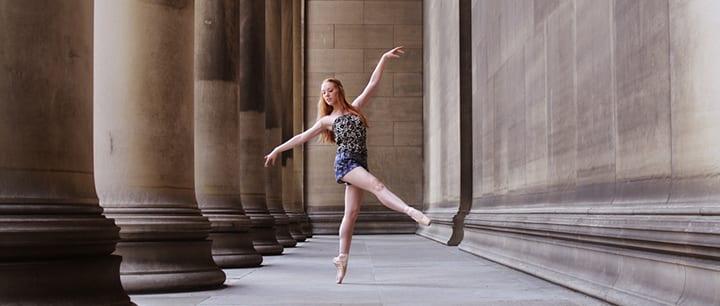 Do you love dance, but aren’t sure if you’re mentally or physically prepared to devote years toward becoming a professional dancer? Dance is a fun, creative, and even life-changing hobby, but it can be even more than that. No matter what your academic interests, you can find a job that harnesses your love for the stage.
Do you love dance, but aren’t sure if you’re mentally or physically prepared to devote years toward becoming a professional dancer? Dance is a fun, creative, and even life-changing hobby, but it can be even more than that. No matter what your academic interests, you can find a job that harnesses your love for the stage.
In reality, ballet companies and other dance troupes only make up a tiny, elite percentage of dance-related employment opportunities. You might be surprised at the volume and variety of different dance careers that are available today. Many of them bring in decent incomes and benefits, all while keeping employees happily involved in the performing arts long after the spotlight fades. Here are some dance careers to consider…
Back-Up Dancing
As long as there are amusement parks, concert tours, music videos, and even local theater companies, there will always be a need for trained dancers who can quickly master choreography and perform for an audience. If you live in or near a major city, always be on the lookout for casting calls and audition opportunities. Dancing back-up for singers, actors, and other entertainers is a great way to work full-time for a big company without keeping a 9-5 schedule in a cubicle.
Many theme parks and seasonal parade venues even hire their talent from private contractors. If you land a position on a regular, rotating cast of freelance dancers, you could find yourself spending summers in places like Los Angeles, California, or Orlando, Florida, depending on big theme parks’ seasonal needs.
Costume and Set Design
Experimental choreographers love pushing the boundaries with innovative, creative costumes that help tell a story or convey emotions. Designing these outfits is a precise skill that requires some dance-related experience; a dancer’s needs are even more specific than an actor’s or a singer’s. If you learn how to accommodate the range of motion and stage space that’s necessary to pull off choreography, and you can do it while choosing colors and textures that elevate the complete effect, you’ll be in demand for years to come.
If fashion isn’t for you, there’s always a need for expressive backdrops, creative props, and unique stage design. While some little girls dream of becoming ballerinas on stage, others may want to cultivate even more lucrative dance careers by learning about set design.
Audio/Visual Engineering
Choreography is only as good as the dancers who perform it – and the sounds and sights that accompany each performance. Spotlights must follow each movement and highlight the differences between principal and supporting cast members. If a production uses pre-recorded music, the tracks must synchronize perfectly with the choreography; after all, dancers practice their movements for precise alignment with the dramatic notes and tones.
This is a particularly good option if you love the creativity of dance but have a brain that’s wired for more technical pursuits. Thanks to an abundance of theatrical software and hardware options, computer engineers now program and oversee most of the lighting and music setups in modern theaters.
Choreography and Instruction
Every inspiring dance performance has years of hard work behind it; much of that work is done by behind-the-scenes talents who turn beginners into performers. Most choreographers and instructors were once professional dancers themselves. It’s certainly not a requirement to have made it all the way, but some experience is a must, so these are both great dance careers for retired performers. You will need an ear for music, and the ability to collaborate and improvise when something unexpected happens.
Volunteering and Studying Opportunities
Whether you’re still growing up or you just need a change of pace, right now is the best time to get started on a new career in the arts! As you’ve seen, the “starving artist” cliche doesn’t have to be the norm in the world of professional dance. If dancing isn’t the only artistic pursuit you enjoy, consider exploring your sewing, sculpting, or painting talents. Offer to help paint or build the sets for high school plays, ask plenty of questions next time you pick up your costumes, take notes when you flip through fashion magazines, take a beginner class at your local community college, or sign up for one-on-one art lessons. These are easy ways to learn more about yourself and your potential.
If you’re so passionate about dance that you want to make it a lifelong pursuit, private dance instruction is absolutely invaluable. Even if you don’t end up dancing professionally or competitively, working with an instructor will give you an intimate, working knowledge of everything that goes into a great dance performance. With that guidance – paired with perseverance and hard work – you may find your life’s calling in a dance-related field!
Photo by mkd.
Suzy S.

